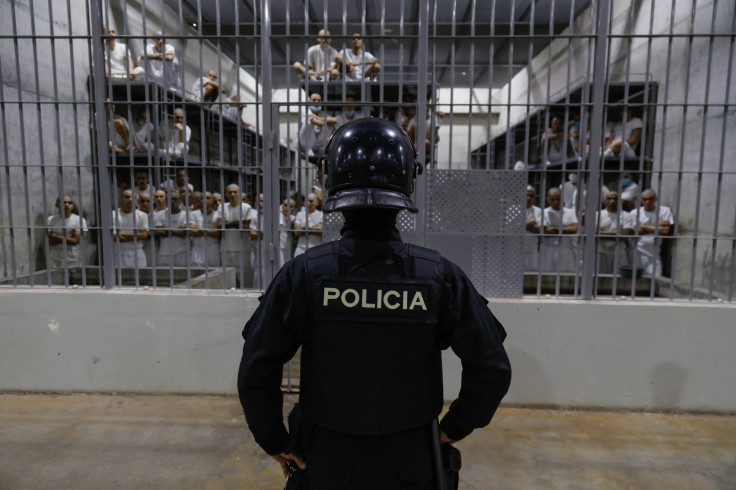
Kerry Kennedy, the daughter of Robert F. Kennedy and niece of John F. Kennedy, told press that the Salvadoran government led by Nayib Bukele prevented her from meeting with U.S. deportees she represents.
"The government of El Salvador, starting with President (Nayib) Bukele, did not respect these rights and denied us, their lawyers, access to our clients," Kennedy said in a press conference. She represents ten Venezuelan men sent to the Central American country's maximum security prison through the wartime Alien Enemies Act.
Later on Monday Cristosal, a prominent local human rights organization, said that while the press conference was taking place Salvadoran police raided their offices. "The agents, when accessing private property, recorded and took pictures of the premises, as well as personnel and press vehicles."
📢 #Comunicado | Como #CristosalenElSalvador reafirmamos nuestro compromiso de seguir trabajando por la verdad, la justicia y la defensa de los derechos humanos.#CristosalNoSeDetiene pic.twitter.com/UWixMHDR1T
— Cristosal (@Cristosal) April 28, 2025
"Police said they were checking 'an alleged show of support for Venezuelans and a press conference.' Cristosal lawyers explained the agents a legitimate activity was taking place and since they did not have a warrant they left. This action is not isolated and takes places in the context of authoritarianism and shutting of democratic spaces in El Salvador," the organization added, warning it would not "stop."
Hundreds of Venezuelans were deported under the Alien Enemies Act in March, with the Trump administration claiming they were members of Venezuelan-born gang Tren de Aragua, and has sought to do so more in recent weeks.
However, several removals have been blocked by courts following a Supreme Court ruling determining that those targeted should be given adequate time to challenge the decision. Family members of many deportees have strongly denied gang affiliation, saying the identifiers cited as reasons are not such.
The ACLU revealed in late March the criteria used by Immigration and Customs Enforcement (ICE) to determine whether detainees are part of the gang. Those scoring between 6 and 7 points "may be validated as members of TDA," while those scoring 8 and higher "are validated as members of TDA" and should be removed, the scorecard reads.
The scorecard has five different categories: Judicial outcomes and official documents, self-admission, criminal conduct and information, documents and communications, and symbolism.
Three sub-categories have 10 points, meaning those found to met the criteria will be immediately removed. They are: being convicted of violating Title 18, Section 521 or any other federal or state law criminalizing or imposing civil penalties for activity related to TDA, self-identifying as a member of the gang, even unwillingly, or having phone calls about TDA-related business with known members of the gang.
Those scoring between 6 and 7 points "may be validated as members of TDA," while those scoring 8 and higher "are validated as members of TDA" and should be removed, the scorecard reads.
The scorecard has five different categories: Judicial outcomes and official documents, self-admission, criminal conduct and information, documents and communications, and symbolism.
Three sub-categories have 10 points, meaning those found to met the criteria will be immediately removed. They are: being convicted of violating Title 18, Section 521 or any other federal or state law criminalizing or imposing civil penalties for activity related to TDA, self-identifying as a member of the gang, even unwillingly, or having phone calls about TDA-related business with known members of the gang.
© 2025 Latin Times. All rights reserved. Do not reproduce without permission.





